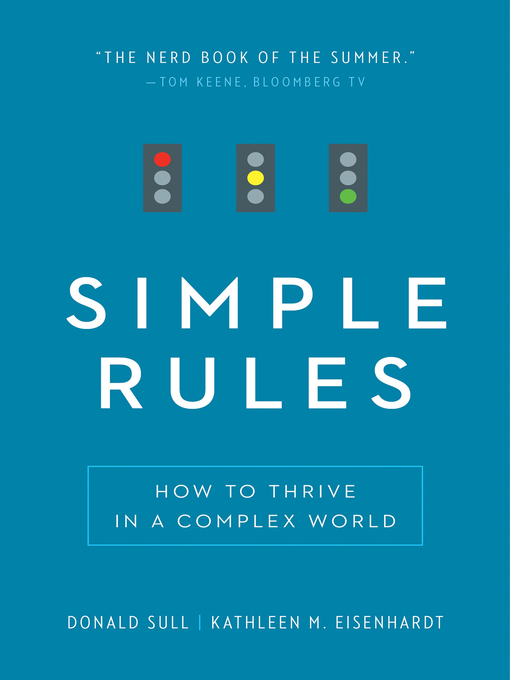- English
- Español
Complexity surrounds us. We have too much e-mail, juggle multiple remotes, and hack through thickets of regulations from phone contracts to health plans. But complexity isn't destiny. Sull and Eisenhardt argue there's a better way. By developing a few simple yet effective rules, people can best even the most complex problems.
In Simple Rules, Sull and Eisenhardt masterfully challenge how we think about complexity and offer a new lens on how to cope. They take us on a surprising tour of what simple rules are, where they come from, and why they work. The authors illustrate the six kinds of rules that really matter—for helping artists find creativity and the Federal Reserve set interest rates, for keeping birds on track and Zipcar members organized, and for how insomniacs can sleep and mountain climbers stay safe.
Drawing on rigorous research and riveting stories, the authors ingeniously find insights in unexpected places, from the way Tina Fey codified her experience at Saturday Night Live into rules for producing 30 Rock (rule five: never tell a crazy person he's crazy), to burglars' rules for robbery ("avoid houses with a car parked outside"), to Japanese engineers mimicking the rules of slime molds to optimize Tokyo's rail system. The authors offer fresh information and practical tips on fixing old rules and learning new ones.
Whether you're struggling with information overload, pursuing opportunities with limited resources, or just trying to change your bad habits, Simple Rules provides powerful insight into how and why simplicity tames complexity.


